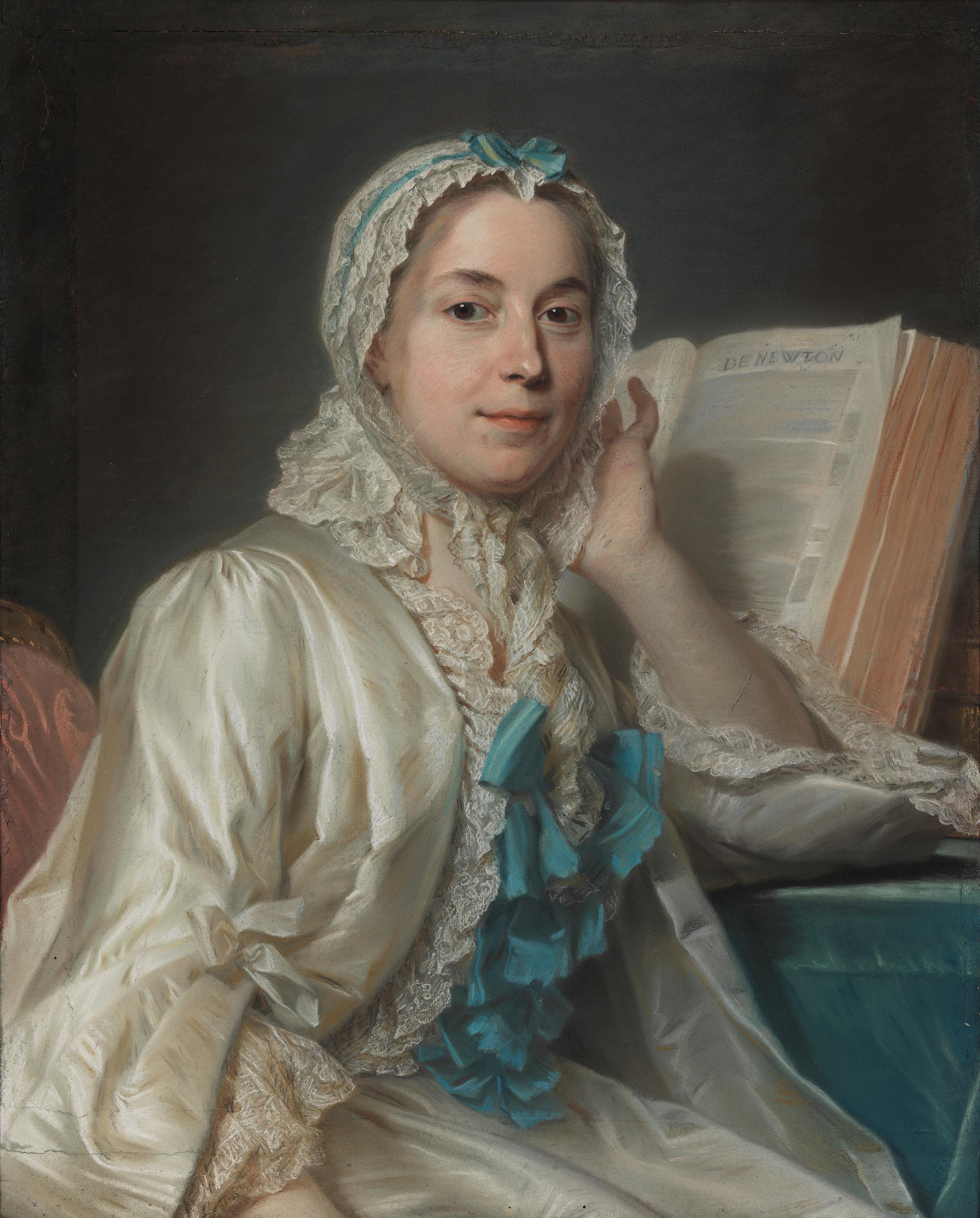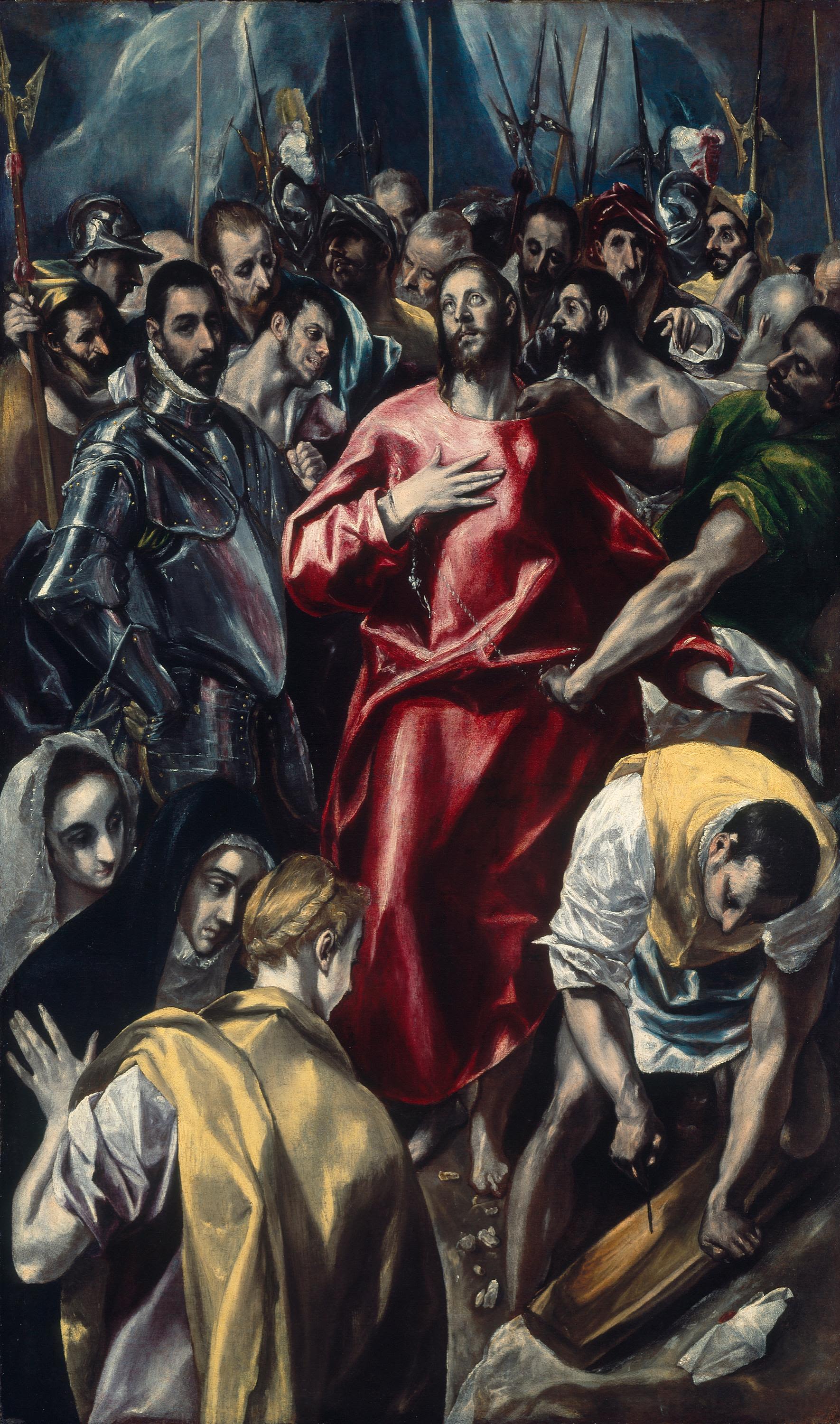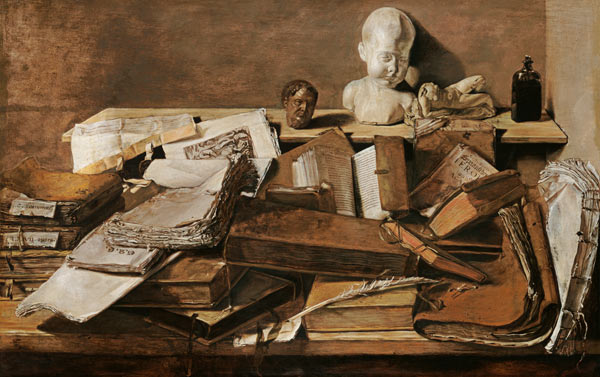Looking at portraits, it’s hard to wonder what the artist thought of the sitter. Here are two I saw in Munich last week, at the Alte Pinakothek:
| 
Portrait of Jean-Baptiste Philippe 1748 | 
Mademoiselle Ferrand contemplates Newton, around 1752 |
These are both by Maurice Quentin de la Tour, painted a few years apart.
On the left is a retired tax collector. Did he ask to be painted with that tight-lipped sneer? I suppose it’s possible that M. Philippe preferred to be respected rather than loved.
But the portrait on the right feels a thousand times more affectionate. Mlle Ferrand is turning away from her study of Newton, almost cupping her ear to listen to the viewer.
I found a fascinating essay which gives some background:
it was commissioned by a woman who knew she was dying, and was exhibited publicly months after her death to an audience who knew exactly who she was and called her “la célèbre Mlle Ferrand”
The gallery itself understates her accomplishments
Ferrand came from an aristocratic background and was highly esteemed in scholarly circles for her mathematical and philosophical knowledge. The philosopher Étienne Bonnot de Condillac frequented her salon.
This salon was held in the rooms Ferrand shared with the Countess of Vassé. Condillac did more than frequent it – his most respected work, the ‘Treatise on Sensations’, was developed in conversation with Ferrand, who he wrote “had a greater hand in this work than I did”. The treatise, published after Ferrand’s death, is dedicated to her memory and to Vasse, in terms that go far beyond the standard flattery of a patron:
You know, Madame, to whom I am beholden for enlightenment that finally made my prejudices evaporate, you know the part played in this work by someone who was so dear to you and so worthy of your esteem and friendship. It is to her memory that I dedicate this work, and I address it to you so that I may enjoy at the same time both the delight of speaking of her and the pain of regretting her loss. Let this monument perpetuate the memory of your friendship and of the honor I had in receiving your mutual esteem.
The whole dedication is very touching, honoring Ferrand’s intellect, her personality, and the intimacy of her relationship with Madame de Vasse:
You will share this pleasure with me, Madame, you who will
forever regret her loss, and thus it is with you that I want to
speak of her. Both equally worthy of esteem, you both had the
discernment which reveals all the value of what is loved and
without which we do not know how to love at all. You knew
the principles, truth, and courage that shaped you for one
another. These qualities were the links of your friendship, and
you found in your relations that happiness characteristic of
virtuous and sensitive souls.
This happiness was then fated to end. In the final moments,
she needed no other consolation than that she would not have
to survive you. I saw that she was indeed happy about that. It
was sufficient for her to live in your memory.
Ferrand came up with the central thought experiment of the book – imagining a ‘statue’ coming to life sense by sense. She wondered how it would understand the world if it could only smell, or only taste, or only hear. I do wonder if there’s an allusion to this in the painting, with her gesture towards her ear.
But alongside all this, she was also involved in some Dumas-level royalist derring-do, hiding Bonnie Prince Charlie in her rooms.
Prince Charlie, grandson of the deposed King James II, was a hapless but dashing figure, who spent his life trying in vain to claim the throne he saw as his. This peaked with a fairly serious invasion attempt in 1745, followed by decades of successively more hopeless ventures as the prince drank and screwed his way across Europe in hiding.
And in 1749-51, he was spending a lot of time hiding with Ferrand and Vassé:
The unfortunate Prince Charles, after leaving the Bastille [really Vincennes] lay hidden for three years in Paris, in the rooms of Madame de Vassé, who then resided with her friend, the celebrated Mademoiselle Ferrand, at the convent of St. Joseph. To Mademoiselle de Ferrand the Abbé Condillac owed the ingenious idea of the statue, which he has developed so well in his treatise on “The Sensations.” The Princesse de Talmond, with whom Prince Charles was always much in love, inhabited the same house. All day he was shut up in a little garderobe of Madame de Vassé’s, whence, by a secret staircase, he made his way at night to the chambers of the Princesse. In the evening he lurked behind an alcove in the rooms of Mademoiselle Ferrand. Thus, unseen and unknown, he enjoyed every day the conversation of the most distinguished society, and heard much good and much evil spoken of himself.
Meanwhile he was maintaining cryptic correspondence with a network of his supporters, often relying on Ferrand as a go-between. It’s surely just a coincidence that one of his primary correspondents went by the code-name ‘Newton’, matching with the book Ferrand is reading.
A biography of the prince shows a lovely overlap of thought and intrigue:
Mademoiselle Ferrand…informed him that an acquaintance had been telling Condillac that he knew the Prince’s hiding-place; the lady also advised him against certain psychological books which he wanted to buy. These, she said, were trash.

Let’s look again at the painting – with slightly more background, and a healthy dose of fantasy. Pausing from her study of ‘Newton’, she devises a thought experiment. How would someone experience the world, they wonder, if he could only hear and not see? Condillac sees her gesture to her ear in illustration. Charles doesn’t – the infamous fugitive, listening but not seeing, is living out the discussion.






